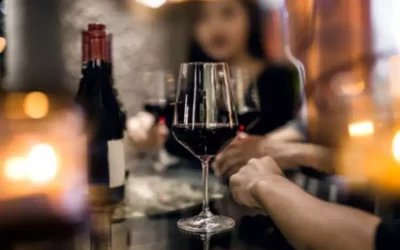Alcohol and Anxiety: How Drinking Alcohol Causes Anxiety Indiana Center for Recovery
Content
Mr. A, a 25-year-old barber, came to the psychiatry clinic with complaints consistent with a possible diagnosis of panic disorder according to the DSM-IV-TR criteria. Mr. A had had his first panic attack approximately 5 months earlier, 1 month after an abrupt cessation of an alcohol abuse period lasting 7 years. He had had almost no withdrawal symptoms except a feeling of dizziness that continued for 1 week. If alcohol consumption causes panic attacks regularly, it is a cause for concern and requires professional attention as it is a sign that the person has become addicted to alcohol. That said, occasional drinking does not cause panic attacks or anxiety attacks, but frequent use can produce them, and infrequent use can trigger already existing anxiety and panic disorders. When a person stops drinking after prolonged alcohol use, they can experience withdrawal symptoms because of the changes their body and brain experience.

One study found that about a fourth of the individuals who were seeking treatment for a panic disorder had a history of alcohol dependence. Preventing alcohol abuse and anxiety is a key part of preventing addiction. Alcohol abuse can lead to feelings of anxiety and depression, which can make it difficult to stop drinking. Alcohol consumption has impacted many parts of the brain, including areas responsible for cognitive function and emotional regulation. In particular, alcohol consumption has been linked to an increased risk of developing panic attacks.
What are the Symptoms of a Panic Attack?
In other words, drinking alcohol may give you a temporary sense of relief, but in the long term it’s likely to worsen your anxiety and weaken your coping capacities. And Mr. B had experienced their first panic attacks 1 month after abrupt cessation of alcohol abuse. They had no history of panic attacks during or immediately after the alcohol abuse period. Had used alcohol to relieve his anxiety after the onset of panic disorder symptoms. Alcohol is a depressant that greatly alters the drinker’s mental state by directly affecting the central nervous system, particularly slowing down the nerve cells of the brain.
How do you break a panic attack cycle?
Just breath, deeply.
Relaxing your body can help sidestep a panic attack. Practice breathing in through your nose for a count of five, hold it for five, and then breathe out through your mouth for a count of five. Or take a class in meditation and breathing techniques.
You need to rebuild that coping ability in order to cure your panic attacks. Additionally, it can lessen the likelihood of chronic anxiety problems. Dopamine is a neurotransmitter – a chemical messenger that transports messages between brain cells and transmits data throughout the body. Although drinking increases a person’s dopamine levels at first, regular alcohol use causes the brain to adjust to the dopamine excess, making it harder to reach that same dopamine level again. Alcohol use may temporarily raise blood pressure and heart rate at the moment. Long-term elevated heart rate, high blood pressure, weakening heart muscle, and irregular pulse might result from drinking more than is recommended.
Can you have alcohol anxiety without having an anxiety disorder?
To limit drinking and its effects, try drinking more slowly, alternating alcohol with water and other hydrating beverages, and making sure not to drink on an empty stomach. You might feel irritable and https://ecosoberhouse.com/article/binge-drinking-how-to-stop-binge-drinking/ worry about things unnecessarily, and could even have a panic attack. Talk to your doctor about alcohol consumption before taking any of these medications, as side effects can be harmful or fatal.

Without alcohol, your brain starts sending you signals to do whatever you need to do to get more of it (survive). This can come in the form of mild or significant withdrawal symptoms. The sort of anxiety you have may influence the treatment you receive. panic attacks and alcohol If you experience social anxiety or phobia, counseling may be the most effective way to lessen your worry (combined with a medication such as sertraline or Zoloft). Substance abuse can cause panic attacks to be more severe or more frequent.
Alcohol and Other Mental Health Disorders, Like Depression
There is no evidence that substance use can directly cause a panic disorder to develop. However, substance use may reduce a person’s ability to cope with feelings of anxiety, which eventually can cause a panic attack. Following an initial panic attack, some people will go on to develop a panic disorder while other people will not. At this point, it is likely a combination of genetic predisposition and individual thought processes that determine whether a panic disorder will develop. If you suffer from panic attacks and have been drinking to help yourself cope, it may be difficult to tell if you’ve truly developed an addiction to alcohol.
- Both alcohol use disorder and anxiety disorder are treatable conditions, and require developing healthy coping mechanisms.
- Anxiety, or hangover anxiety, is an unpleasant companion to the headache and nausea.
- The condition of alcohol-induced anxiety can last for several hours and can be one of the more serious symptoms of alcohol withdrawal.
- It often overproduces, leaving us beneath our baseline into anxiety and depression levels.
- For example, a person with social anxiety might be afraid of going to a party where there will be many people they do not know.
- As many as half of the people who use marijuana to self-medicate their anxiety will experience increased anxiety and panic attacks.
This isn’t always easy, but it can help reduce your chances of developing anxiety problems in the first place. Second, talk to your doctor about whether or not drinking alcohol is safe for you. Another way is to provide support for people who are struggling with alcohol abuse or anxiety. Many resources are available to help people overcome addiction and prevent alcohol abuse and anxiety. Despite this lack of clarity, it seems that there could be a relationship between the two.
Panic Disorder After the End of Chronic Alcohol Abuse: A Report of 2 Cases
For some people, a panic attack is a solitary or isolated event. However, others experience repeated bouts of unexpected, intense panic. When doctors note the occurrence of these repeated episodes, they diagnose the presence of panic disorder. In addition to experiencing the symptoms of a panic attack, people with this disorder may dread the uncertainty of not knowing when the next bout of symptoms will begin.
- When a person with an alcohol use disorder abstains from consuming alcohol for more than a few hours, it can lead to the onset of cravings that eventually transition into withdrawal.
- Any reminder of the past trauma, including dreams or a random thought, can trigger a panic attack.

